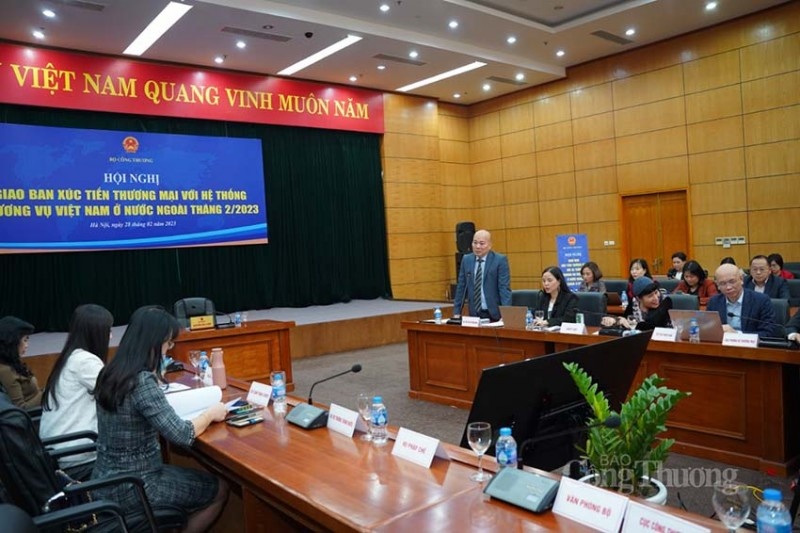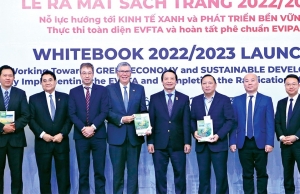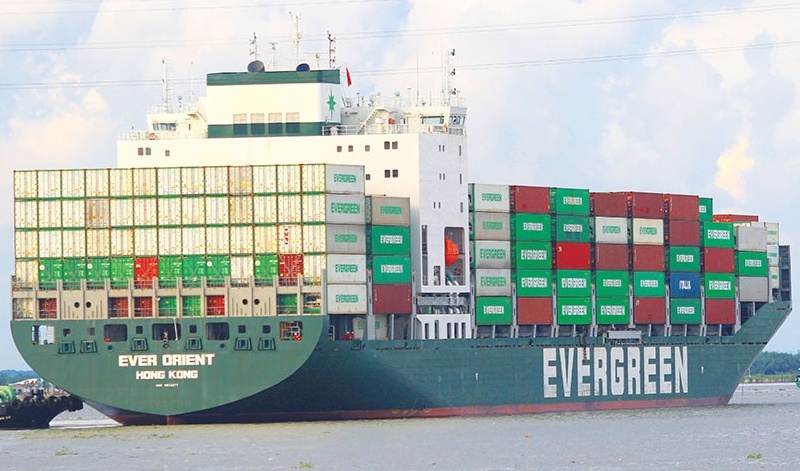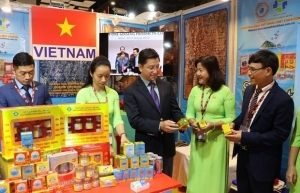Minister of Industry and Trade lays out five goals to boost exports
However, according to Minister Dien, the trade office must prioritise five goals in order to enhance the efficacy of trade promotion and increase exports.
The first goal will be to comprehend any policy changes in the host country swiftly, especially regional market policies, and offer suitable responses at both the national and corporate levels.
Second, the office should conduct research, suggest solutions, and increase the quantity and variety of commodities for export. This can be helped by cooperatively procuring raw materials for domestic industries.
Thirdly, it is vital to improve business-to-business ties between local and international companies. It will do this by encouraging domestic firms to participate in areas such as high-tech investment and assisting businesses in expanding their investment partnerships.
The fourth area to focus on will be the creation of a database for each sector that will serve as a learning resource for future generations of Vietnamese investors and businesses seeking international partnerships. According to Minister Dien, Vietnam should encourage industry groups and import-export companies to use briefings as a means of disseminating market knowledge to increase trade promotion. "Such information can assist municipalities, organisations, and enterprises in orienting their production and operations in light of the market's forecasted problems until the end of the year," he said.
Finally, the trade office should establish connections with businesses in various localities to arrange visits by international trade firms to Vietnam to tour high-growth areas for agriculture and manufacturing. Dien proposed that organisations and enterprises maintain continuous and close touch with foreign market situations and foreign Vietnamese transactions to promote and highlight the potential advantages of Vietnamese products. "Businesses may assist in promoting a product and help clients experience it directly at the embassy of the host nation," he said.
According to the Vietnam Trade Promotion Agency (Vietrade), under the Ministry of Industry and Trade, Vietnam's processed goods are currently exported to more than 180 countries and territories, with numerous billion-dollar export categories, such as seafood exports with a $10 billion/year turnover.
Vu Ba Phu, director of Vietrade, speaking at a conference on trade promotion last month, stated, "The world's major import and consumption markets, such as the United States, the European Union, and China, are raising criteria on sustainable practises for products, which include social, environmental, and economic aspects across the entire supply chain".
 |
According to Phu, Vietnam's processed goods continue to export primarily raw materials through informal channels, despite the country's high level of competitiveness, and are "under strenuous market rivalry" from nations within ASEAN, Asia, and China, which is the primary customer of Vietnamese businesses.
Specifically, changes in consumer behaviour have had a detrimental impact on Vietnamese exporters, particularly the worldwide trend giving preference to plant-based protein sources as an option over animal-based protein sources, resulting in a rise in demand for such goods.
 | EU-Vietnam trade pact still contains vast future benefits Europe and Vietnam are looking to the EU-Vietnam Free Trade Agreement as a way to deepen bilateral trade and investment cooperation with a focus on a greener economy and more sustainable development. |
 | World Logistics Passport inaugurates its Hanoi Hub World Logistics Passport (WLP), a global effort founded in Dubai that aims to facilitate global commerce, has added Vietnam to its increasing list of hubs and allies. |
 | Common trade goals pulling India and Vietnam closer Advantages under the regional trade agreements between ASEAN and India could be a key driver of an increase in both countries’ trade turnover, and in Indian investment into the Southeast Asian market. |
What the stars mean:
★ Poor ★ ★ Promising ★★★ Good ★★★★ Very good ★★★★★ Exceptional
Related Contents
Latest News
More News
- Vietnam-South Africa strategic partnership boosts business links (February 06, 2026 | 13:28)
- Mondelez Kinh Do renews the spirit of togetherness (February 06, 2026 | 09:35)
- Seafood exports rise in January (February 05, 2026 | 17:31)
- Accelerating digitalisation of air traffic services in Vietnam (February 05, 2026 | 17:30)
- Ekko raises $4.2 million to improve employee retention and financial wellbeing (February 05, 2026 | 17:28)
- Dassault Systèmes and Nvidia to build platform powering virtual twins (February 04, 2026 | 08:00)
- The PAN Group acquires $56 million in after-tax profit in 2025 (February 03, 2026 | 13:06)
- Young entrepreneurs community to accelerate admin reform (February 03, 2026 | 13:04)
- Spring Fair 2026 launches national fair series (January 30, 2026 | 16:17)
- SnP celebrates 10th anniversary with new brand identity (January 30, 2026 | 14:41)

 Tag:
Tag:




















 Mobile Version
Mobile Version